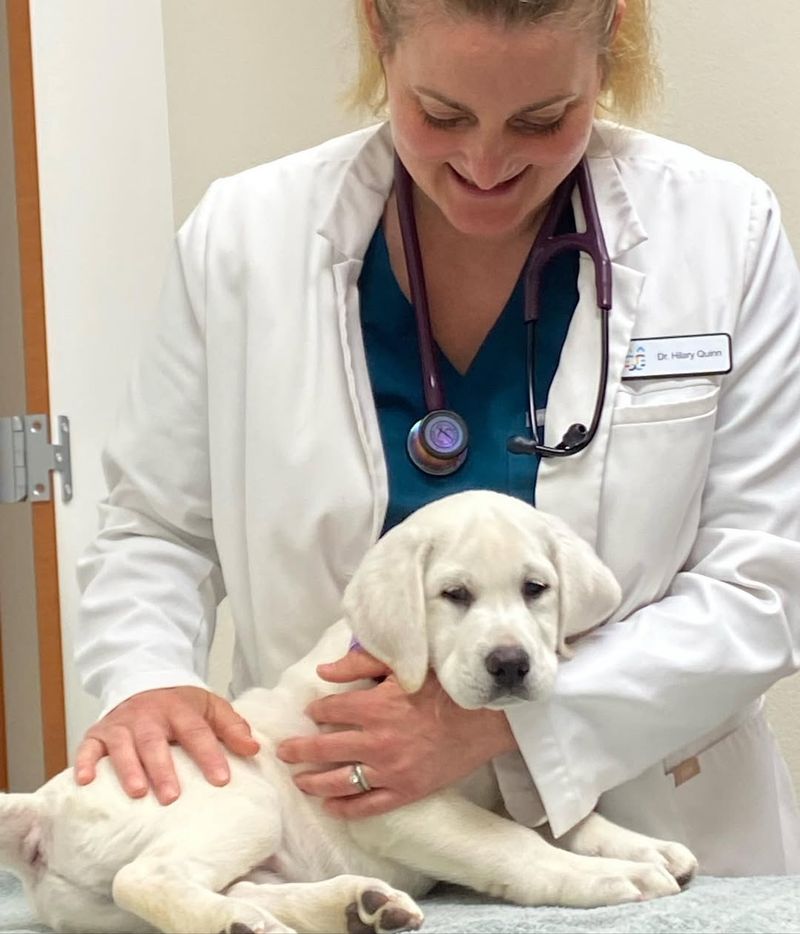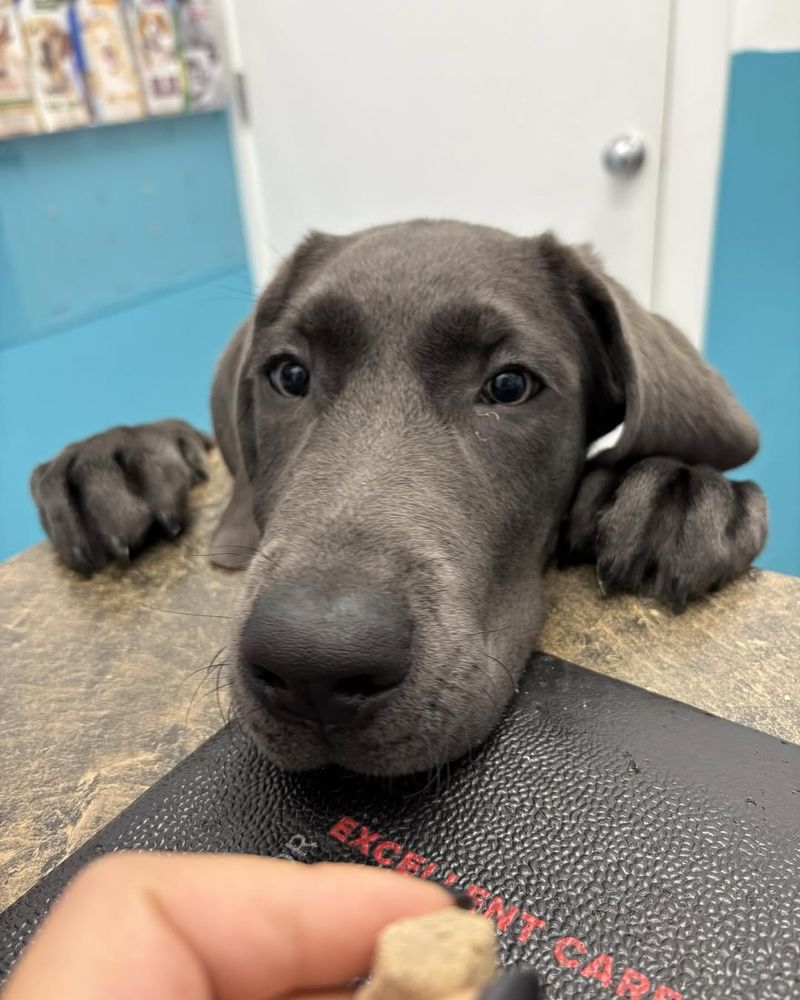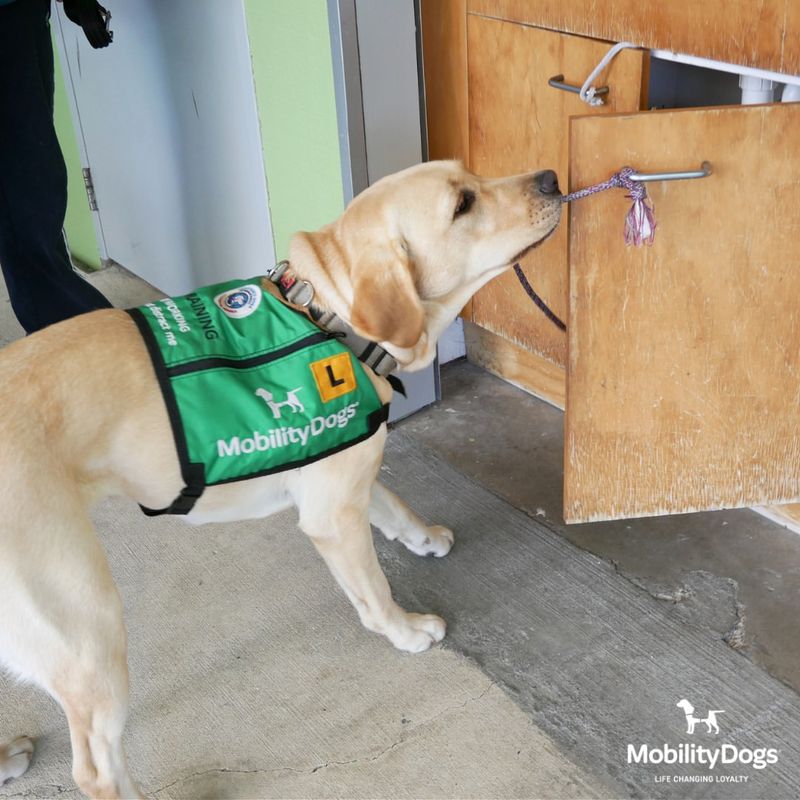Labrador Retrievers are one of the most beloved dog breeds in the world. Known for their friendly demeanor and playful nature, they have won the hearts of many dog enthusiasts. However, Labradors might not be suitable for every household. Despite their many appealing qualities, there are specific characteristics and needs of this breed that might pose challenges to some potential owners. This blog post delves into 19 reasons why a Labrador Retriever might not be the perfect match for everyone, helping prospective dog owners make an informed decision.
High Energy Levels
Labradors are known for their high energy levels, often needing extensive daily exercise to keep them content and healthy. This characteristic makes them perfect companions for active individuals or families who enjoy outdoor adventures. However, for those with a more sedentary lifestyle, this high energy can become overwhelming. If not provided with sufficient activity, Labradors can develop behavioral issues such as excessive barking or destructive chewing. For potential owners who prefer a more relaxed pace, the demands of a Labrador’s exercise needs might prove to be a significant challenge.
Shedding Problems
Labradors have a dense double coat that tends to shed heavily, especially during the spring and fall shedding seasons. This can lead to a lot of loose fur around the house, requiring regular cleaning. For those with allergies or a preference for a tidier home, the constant shedding can be a nuisance. Regular grooming can help manage the fur, but this demands time and effort. People who are meticulous about cleanliness or have allergic reactions to dog dander might find the shedding of a Labrador to be particularly problematic.
Size Considerations
Labradors are a medium to large breed, with males weighing between 65 to 80 pounds and females slightly less. Their size can be a concern for individuals living in smaller spaces, like apartments. Having a large dog in a restricted area can lead to accidents or damage, and Labradors may feel confined and restless. Potential owners need to consider whether they have enough space to accommodate such a robust breed. For those who live in smaller homes, the space required for a Labrador might be a limiting factor.
Training Needs
Labradors are intelligent and eager to please, which makes them highly trainable. However, they require consistent and early training to ensure they become well-behaved adults. Without proper training, Labradors can become unruly, exhibiting behaviors like jumping on visitors or pulling on leashes. Training requires a commitment of time and effort, which not everyone is prepared to invest. Potential owners should assess their willingness and ability to engage in a consistent training regimen. Failure to do so can result in a Labrador that is difficult to control and manage.
Potential Health Problems
Labrador Retrievers are generally healthy dogs but are predisposed to certain genetic health issues. Common concerns include hip and elbow dysplasia, obesity, and eye disorders. These conditions can lead to significant veterinary costs and require ongoing management. Owners must be prepared for the potential financial and emotional burden of dealing with a Labrador’s health issues. Regular check-ups and a proper diet can mitigate some risks, but the possibility of inherited problems remains. Prospective owners should consider whether they are equipped to handle the potential health challenges that come with this breed.
Dietary Requirements
Labradors love food and are prone to obesity if their diet is not carefully managed. They require a balanced diet tailored to their size, age, and activity level. Overfeeding or giving in to their pleading eyes can quickly lead to weight issues, impacting their health and quality of life. Owners must exhibit discipline in managing a Labrador’s diet, which includes avoiding excessive treats and ensuring regular exercise. For those who might find this level of dietary vigilance overwhelming, a Labrador might not be the best choice. Proper nutrition is crucial to maintain their health and activity levels.
Need for Companionship
Labradors are social animals that thrive on companionship and interaction with their owners. They can develop separation anxiety if left alone for long periods, which may result in destructive behavior. For individuals who work long hours or frequently travel, this need for companionship can be a significant concern. Labradors do best in households where someone is often home or where they can be included in daily activities. Future owners should consider whether they can meet the social needs of a Labrador or if their lifestyle might lead to an unhappy and anxious dog.
Potential for Destructive Behavior
Labradors, especially when young, are notorious for their chewing habits. This behavior, if not addressed, can lead to damage of personal belongings or home interiors. Providing appropriate chew toys and consistent training can help mitigate this tendency. However, owners need to be vigilant and patient as they guide their Labrador through this phase. Individuals who lack the time or patience to manage a chewing Labrador might find this aspect particularly frustrating. It’s essential to redirect their chewing instincts to suitable items to protect your possessions and maintain harmony in your home.
Work and Commitment
Owning a Labrador requires a significant time commitment, including daily walks, playtime, and training sessions. This demands a balance with work and other responsibilities, which can be challenging for busy individuals. Labradors are not a low-maintenance breed, and neglecting their needs can lead to behavioral issues. Potential owners must evaluate their lifestyle and ensure they can dedicate the necessary time and energy. Balancing a Labrador’s demands with a hectic schedule may not be feasible for everyone, and understanding this commitment is crucial before bringing a Labrador into your home.
Inconsistent Temperament
While Labradors are generally friendly, individual temperaments can vary widely. Some may be calm and laid-back, while others might be more excitable and energetic. Understanding and managing these differences is crucial for owners. Without proper assessment, an owner’s expectations may not align with their Labrador’s natural disposition. Prospective owners should meet the puppy’s parents and observe their behavior, as genetics play a significant role in temperament. Not everyone is prepared for the unpredictability of a Labrador’s personality, which might lead to dissatisfaction and challenges in managing their behavior.
Grooming Responsibilities
Labradors require regular grooming to maintain their coat and overall hygiene. This involves brushing to manage shedding, bathing as needed, and checking ears and teeth. While not as high-maintenance as some breeds, grooming still demands time and effort. For those who are not inclined to engage in regular grooming routines, a Labrador’s care requirements might be burdensome. Ensuring their coat stays healthy and clean is essential to prevent skin issues and maintain their appearance. Prospective owners should be prepared to integrate grooming into their routine to keep their Labrador looking and feeling their best.
Strong Prey Drive
Labradors possess a natural prey drive, which can manifest in chasing after small animals during walks. This instinct, while natural, can lead to safety concerns if not properly managed. Training a reliable recall command and using a leash in unsecured areas are crucial. Owners need to be vigilant and prepared to manage their Labrador’s impulses. For those who prefer a more docile walking companion, the prey drive of a Labrador might be a challenge. Understanding and controlling this trait is essential for a harmonious relationship, ensuring safety for both the dog and other animals.
Barking Tendencies
Labradors are known to be vocal, often barking to alert their owners of visitors or unusual activities. While this can be advantageous for security, excessive barking can become a nuisance. Training can help manage this behavior, but it requires consistency and patience. Owners need to identify the triggers of barking and address them appropriately. For those living in close quarters with neighbors, a barking Labrador might cause issues. Evaluating the potential for noise complaints and their tolerance for barking is important for future owners who thrive in quieter environments.
Adolescent Behavior Challenges
Labradors go through an adolescent phase, where they can exhibit hyperactive and unruly behavior. This period demands patience and consistent training to guide them into becoming well-mannered adults. Owners need to be prepared for this challenging phase, which can last several months. Providing appropriate outlets for their energy and reinforcing good behavior is essential. Those who are unprepared for the trials of adolescent Labrador behavior might find this stage particularly testing. Understanding that this phase is temporary and manageable with effort can help potential owners navigate these challenges successfully.
Socialization Needs
Labradors are social animals that benefit greatly from regular interactions with other dogs and people. Early and ongoing socialization is crucial for developing a well-adjusted and friendly pet. Without proper socialization, Labradors may develop anxiety or aggression towards unfamiliar dogs or people. Owners should ensure regular visits to dog parks and social settings, investing time in exposing their Labrador to diverse environments. For those who prefer a more solitary lifestyle, meeting a Labrador’s socialization needs might be daunting. Understanding the importance of these interactions helps in raising a balanced and joyful Labrador.
Vet and Healthcare Costs
Caring for a Labrador involves regular veterinary visits and potential healthcare expenses. Routine checkups, vaccinations, and unexpected health issues can add up, requiring a financial commitment. Pet insurance can help manage costs, but prospective owners should be aware of the potential expenses involved. For those on a tight budget, the healthcare needs of a Labrador might be an important consideration. Planning for these expenses and understanding the financial aspect of pet ownership helps in making informed decisions. Ensuring a Labrador’s health is a long-term commitment that requires preparation and resources.
Weather Sensitivity
Labradors, with their thick coats, can be sensitive to extreme temperatures, particularly heat. Owners need to take precautions during hot weather by providing plenty of water, shade, and avoiding strenuous activity. In cold climates, they generally fare better but may still require protection during harsh weather conditions. Understanding and accommodating a Labrador’s weather sensitivities is essential for their comfort and health. For those living in regions with extreme temperatures, addressing these needs becomes a priority. Ensuring a Labrador’s well-being involves adapting to seasonal changes and protecting them from weather-related discomfort.
Limited Independence
Labradors are known for their loyalty and desire to be close to their owners. This trait, while endearing, means they are less independent compared to some other breeds. They enjoy being involved in family activities and can sometimes be seen as clingy. For individuals seeking a more independent pet, a Labrador’s constant need for interaction might be overwhelming. It’s important for prospective owners to assess whether they can accommodate a Labrador’s dependence, ensuring they have the time and energy to engage with their pet. This close bond requires a reciprocal commitment from the owner.
High Maintenance Puppies
Labrador puppies are adorable but come with a high level of maintenance. Their playful nature can lead to chaos if not properly managed. Training, socialization, and housebreaking require considerable time and patience. Potential owners must be ready for sleepless nights and the dedication needed to guide a Labrador puppy into a well-behaved adult. The early stages of a Labrador’s life are crucial for setting the foundation for future behavior. For those unprepared for the demands of a puppy, this breed might not be the ideal choice. Patience and consistency are key to raising a delightful Labrador.



















